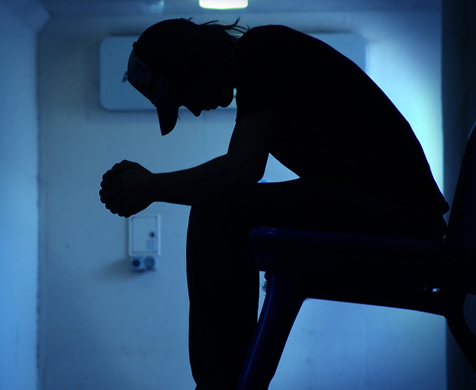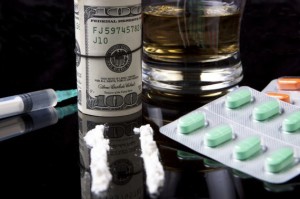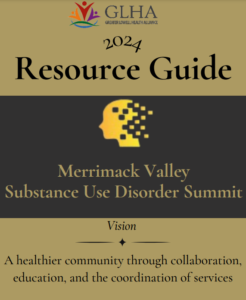Substance Use and Prevention

The abuse of alcohol and illicit drugs has reached epidemic proportions. Addressing this crisis is a priority of the Greater Lowell Health Alliance and its Substance Abuse and Prevention Task Force.
Please join us in the fight.
Who We Are
 The Substance Use and Prevention Task Force works to strengthen collaboration in the Greater Lowell community to prevent and reduce substance use disorders among youth and adults. The Task Force has grown to include representatives from over 50 local health and human service agencies, as well as youth, parents, law enforcement officials, and elected officials.
The Substance Use and Prevention Task Force works to strengthen collaboration in the Greater Lowell community to prevent and reduce substance use disorders among youth and adults. The Task Force has grown to include representatives from over 50 local health and human service agencies, as well as youth, parents, law enforcement officials, and elected officials.
Task Force Chairs
Michael Hall, DMH
Join Us
W e urge you to join us in the fight to address this substance abuse and addiction crisis. Attend one of our task force meetings or contact Michael Hall to learn how you can get involved. Meetings will take place on the 1st Tuesday of every month, 9-10am.
e urge you to join us in the fight to address this substance abuse and addiction crisis. Attend one of our task force meetings or contact Michael Hall to learn how you can get involved. Meetings will take place on the 1st Tuesday of every month, 9-10am.
- Tuesday, June 3, 2025
- July & August Meetings Cancelled
- Tuesday, September 2, 2025
- Tuesday, October 7, 2025
On Thursday, December 12th we will be hosting our Annual Merrimack Valley Substance Use Disorder Summit at the Westford Regency Inn & Conference Center in Westford, MA.
Registration is required for this event. Please register by clicking here.
The Merrimack Valley Substance Use Disorder Agenda can be found HERE!
Addressing the Need
The abuse of tobacco, alcohol, and illicit drugs is costly to our nation, exacting more than $700 billion annually in costs related to crime, lost work productivity, and health care. The untold cost of drug and alcohol abuse and addiction in Greater Lowell and throughout the United States comes in the form of broken families, destroyed careers, death due to negligence or accident, child abuse, and domestic violence.
Nationally
- In 2020, 37.309 million Americans 12 years and older were current illegal drug users,
13.5% of them used drugs in the last month, 3.8% increase year over year, and 138.543 million have used drugs or misused prescription drugs within the last year. - Studies show that 43% of individuals that receive treatment for the misuse of
prescription painkillers for non-medical purposes exhibit signs or have been diagnosed with mental health conditions, notably depression and anxiety. - Operating a vehicle while under the influence of drugs can significantly impair driving
abilities. Studies quantify nearly 44% of drivers involved in fatal car accidents had tested positive for drug use according to the National Institute of Drug Use. - 1.16 million Americans are arrested annually for drug related offences, 80% are present inmates who abuse drugs or alcohol, 244,000 people are sent to prison due to drug related crimes, and 26% of all arrests nationally are related to drug offenses.
- According to the National Institutes of Health (NIH), over 33% of adolescents who
experience abuse will develop substance abuse before their 18th birthday. Another study found that 75% of patients undergoing detoxification reported an encounters with interpersonal trauma during childhood.
Locally
The 2022 Greater Lowell Health Needs Assessment, a collaborative effort of the GLHA, Lowell General Hospital, and University of Massachusetts Lowell, has identified substance abuse and addiction – including opioids, alcohol, and tobacco – as among the most serious unmet needs in Greater Lowell.
Public health data supports concerns that the Greater Lowell area, and the City of Lowell in particular, have higher rates of substance abuse-related hospital admissions and opioid-related overdose deaths.
- Nearly one-third of Community Survey participants reported experiencing mental
health issues, with 29.4% citing anxiety, depression, and PTSD, and 11.2% mentioning
suicidal thoughts or previous attempts. - Emergency department utilization for mental health needs in Lowell was significantly
higher (4,199 per 100,000) compared to both the state average (2,466 per 100,000) and the regional rate (1,834 per 100,000) - Since the initiation of the Massachusetts Syndromic Surveillance Program’s reporting of emergency department data on suicide and suicidal ideation in 2019, the statewide rates of emergency visits linked to suicidal ideation have shown consistency, hovering around an average of 4,882 emergency department visits per month statewide.
Merrimack Valley Substance Use Disorder Symposium
On December 7, 2018 the Greater Lowell Health Alliance and its many partners held a “Merrimack Valley Substance Use Disorder Symposium” with over 350 attendees. This event has taken place yearly after it’s creation welcoming community organizations from across New England. This past years event was held in December 2023 and welcomes over 200 individuals to learn from local experts.
NIH’s HEALing Communities Study
The GLHA served as the fiscal agent for this multi-site
implementation research study, which will test the impact of an integrated set of evidence-based practices across health care, behavioral health, justice, and other community-based settings. The goal of the study is to reduce opioid-related overdose deaths by 40 percent by July 2022.
Merrimack Valley Substance Use Disorder Resource Guide
In 2018, we released our first Merrimack Valley Substance Use Disorder Resource Guide with the goal of helping our communities navigate the many resources in this area. This document is a living document and will be constantly updated online, with a print version to be released every year at the Symposium.
View and download the 2024 Substance Use Disorder Resource Guide.
For any questions about this resource guide, please email Kerrie D’Entremont.
To get your information added to the resource guide please complete THIS FORM
Our Impact
Since its inception, the Substance Use & Prevention (SUP) Task Force has worked to strengthen new and existing collaborations in the Greater Lowell community to prevent and reduce the use of substances among our community members. With a focus on environmental strategies, the task force employs efforts on policy making, substance use intervention, and prevention education.
Current Initiatives
- Created a comprehensive list of sober-friendly events across the Merrimack Valley and Southern New Hampshire during the month of April and collaborated with local libraries to produce alcohol- awareness book displays.
- Held several Learning Collaboratives throughout the year to highlight organizations, programs, and services in the region addressing substance use disorder and Mental Health.
- Assisted in the planning of the Annual Merrimack Valley Substance Use Disorder Summit in December 2023 and December 2024.
Past Initiatives
- Combined the Substance Use and Prevention Task Force and the Behavioral Health Task Force in the beginning of 2021. This was due to the overlap in projects being addressed by each task force. We also found that the task force members overlapped as well.
- Hosted the 3rd Annual Merrimack Valley Substance Use Disorder Symposium-virtually. Our planning committee quickly switched gears once the pandemic hit to host our annual conference virtually. We were excited to welcome over 220 participants on Zoom for our symposium on December 7 2021.
- The HEALing Communities Coalition in Lowell has been meeting monthly, where collaboration across organizations takes place to address substance use disorders in our city. Our three subcommittees (MOUD, OEND and Communications) meet to share expertise to best serve clients. A billboard and mobile ad campaign has been placed as we hope to raise consciousness and address stigma.
- Created three working groups as part of the task force to address the objectives identified in the Substance Use and Prevention section of the Community Health Improvement Plan: early intervention, increased access and awareness of treatment services and resources and strategies that emphasize treatment over punishment.
- Hosted a September National Recovery Month and October National
Substance Abuse Prevention Month press conference in collaboration with the District Attorney’s office, Westford Health Department, Westford Public Schools, and Westford Police Department on September 18 at Westford Town Hall. - Hosted the “Opioid Epidemic and HIV Transmission” Networking Luncheon on February 23, presented by the Carino Department at Lowell Community Health Center.
- Working with University of Massachusetts Lowell and Rivier University students, assisted the Objective 1 working group (early intervention) in completing focus groups with middle and high school students on social media platforms and how students get their information. The findings of these groups will be used to create a media plan moving forward.
- Updated and distributed the Substance Abuse and Prevention Resource Guide developed by the task force in 2016.
- Worked with the Massachusetts Opioid Abuse Prevention Collaborative
(MOAPC), led by the City of Lowell and including the towns of Billerica, Chelmsford, Dracut, Tewksbury, Westford, and Wilmington, to implement local policy, practice, systems, and environmental change. - Worked with Professor Leland Ackerson and the University of Massachusetts Lowell students as they conducted a survey to help us identify first responders training needs around the opioid epidemic, organizations utilizing recovery coaches in the area, and locations that offer jail diversion options.

